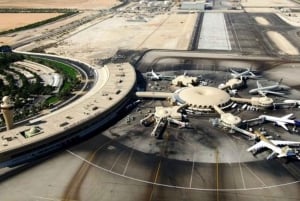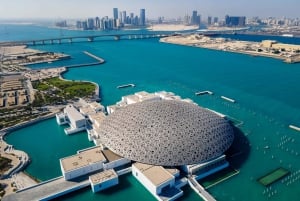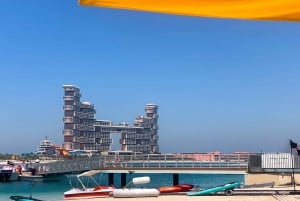Government of Abu Dhabi
Government of Abu Dhabi is a transparent, accountable and responsive government. The creation of the federation of the Emirates in 1971 is mainly attributed to the late Sheikh Zayed bin Sultan Al Nahyan. His achievements and deeds in all fields continued and resulted in the UAE's prosperity and growth. Sheikh Zayed was known as the Father of the Nation due to his great developments of the city of . Following the death of Sheikh Zayed in November 2004, he was succeeded by the Crown Prince, His Highness Sheikh Khalifa bin Zayed Al Nahyan, who became the Ruler of Abu Dhabi, as well as the President of the United Arab Emirates. His Highness Sheikh Mohammed bin Rashid Al Maktoum is currently the vice president and prime minister of the UAE. Upon the directives of HH Sheikh Khalifa in November 2004, General Sheikh Mohamed bin Zayed Al Nahyan became the Crown Prince of Abu Dhabi.
The Supreme Council is the country’s top policy making body comprising the hereditary rulers from each of the seven emirates. Other branches of the federal government include the Federal Council of Ministers (executive), the Federal Judiciary and the 40-member Federal National Council (legislative). Furthermore, each of the seven emirates has their own local government, which coordinates closely with the federal institutions and which follows a general pattern of structure, as outlined in the constitution.











